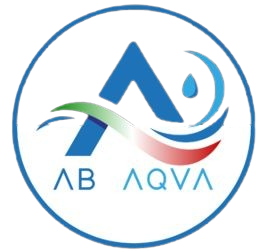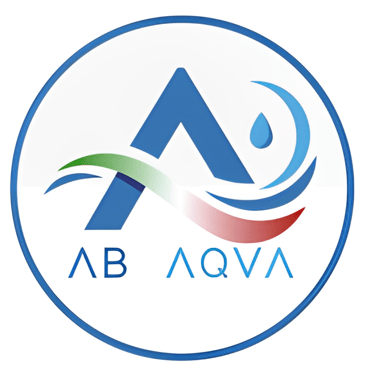Guest Lecture - Lund University
Filippo Verre - May 30, 2024


AB AQUA's President Dr. Filippo Verre gave a Guest Lecture on 30 May 2024 at the Faculty of Civil Engineering, Lund University, at the invitation of Prof. Hossein Hashemi. The lecture, entitled The Mosul Dam’s Role in Fostering Local, Trans-Regional and International Water Cooperation, addressed one of the most complex and relevant issues in the context of water resources management and international cooperation.
Dr. Verre highlighted the central role of the Mosul Dam not only for Northern Iraq but for the entire Middle East. Despite its strategic importance, this dam has long been surrounded by a negative narrative, mainly due to the considerations of many media, experts and analysts who, even after some significant renovation works, consider the dam “structurally dangerous and unreliable”. AB AQUA had already dealt with the issue in the past; some time ago, in fact, we had already highlighted the strategic importance of the water infrastructure for the region, with a particular focus on the role played by Italy in the restructuring and defense of the dam.
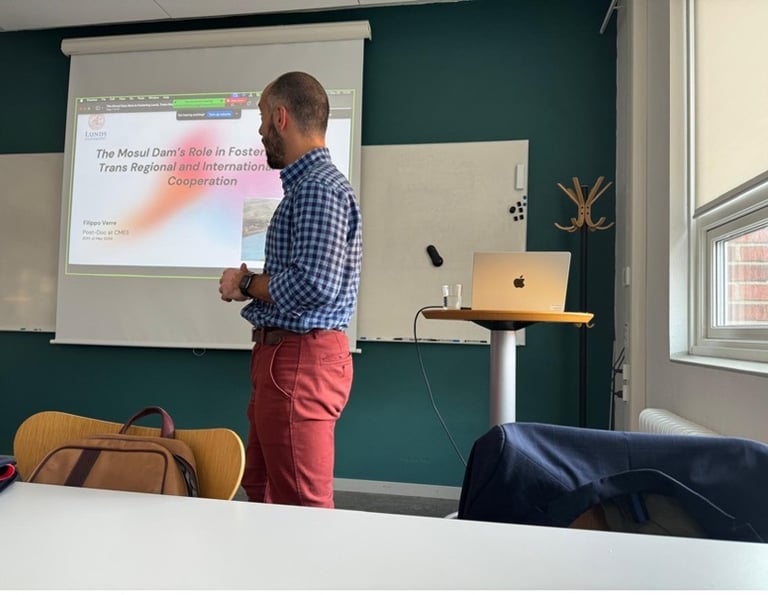

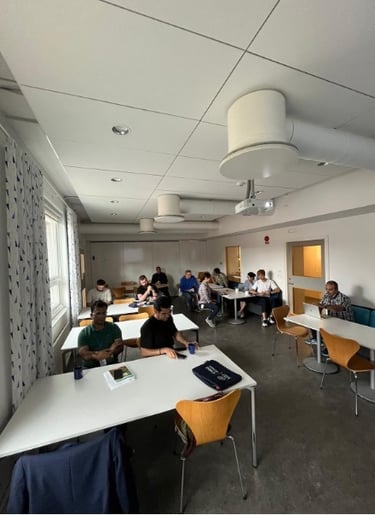

Opened in the 1980s, the Mosul Dam is critical for several reasons that affect the environment, economy and regional politics.
Strategic Importance
1. Water Supply: The Mosul Dam plays a vital role in regulating the flow of the Tigris, providing water for irrigation, domestic and industrial use. This is particularly significant in a region where water is often scarce and water security is directly linked to food security.
2. Power Generation: The dam is a significant source of hydroelectric power, providing electricity to thousands of homes and businesses. This capacity is essential to Iraq’s economic stability, especially in the event of conflict or political instability.
3. Flood Prevention: The dam helps control flooding during the rainy season, protecting agricultural lands and urban areas downstream. This is crucial to preventing natural disasters that could have severe social and economic repercussions.
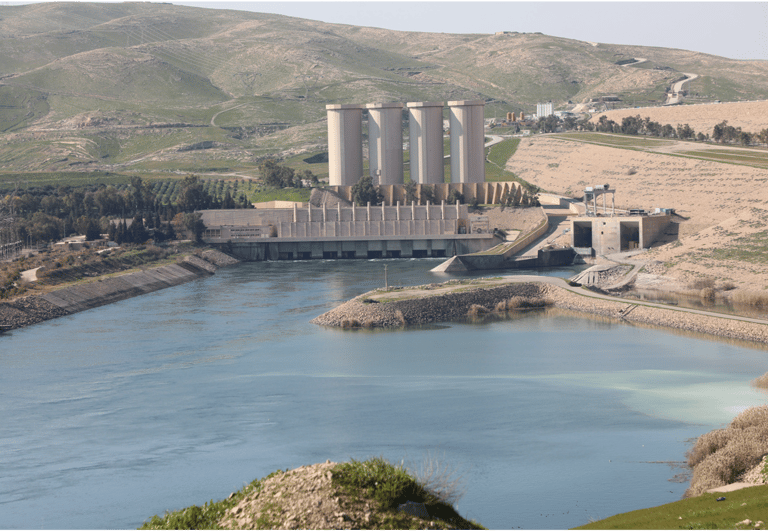

The Mosul Dam
Point of Tension and Cooperation
The management of the Mosul Dam has implications that go beyond national borders. The water of the Tigris is a resource also shared by Turkey and Syria, making international cooperation essential for the equitable and sustainable management of the river. Regional cooperation in this context can help prevent water-related conflicts, promote peace and economic development.
Challenges and Risks
Despite its importance, the Mosul Dam also presents significant risks, mainly related to its structural stability. Built on soluble gypsum foundations, the dam requires constant maintenance to prevent the risk of collapse, which would have catastrophic consequences for millions of people. The maintenance of this infrastructure is therefore another critical aspect that requires continuous attention and significant resources. In this regard, Italy has been a protagonist in the safety of the dam thanks to Trevi SPA.
The Italian engineering company based in Cesena has played a crucial role in the renovation of the Mosul Dam, with an ambitious and innovative project. Before Trevi’s intervention, it was considered one of the most risky dams in the world and posed serious safety risks due to its erodible foundations.
Trevi’s intervention
Trevi’s rehabilitation project began in 2016 after the Iraqi government and the World Bank recognized the urgency of interventions to prevent a possible catastrophe.
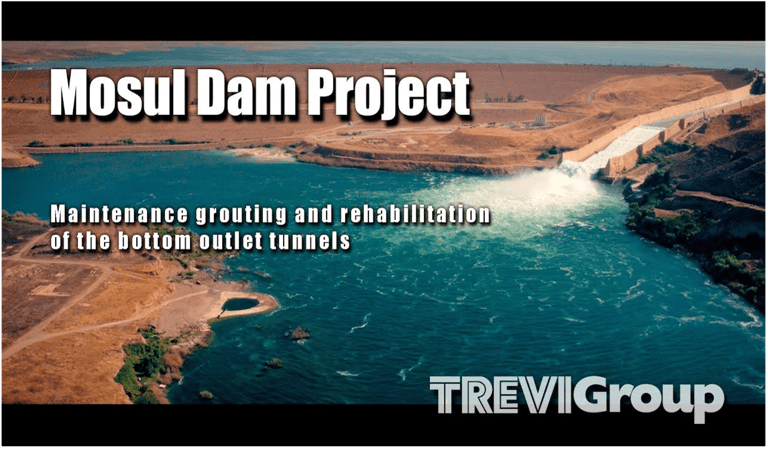

The Mosul Dam Renovation and Maintenance Project Led by Trevi
Trevi’s work included:
1. Foundation Consolidation: Trevi conducted extensive grouting of the dam’s foundations to stabilize the ground and reduce the risk of erosion. This process, known as “grouting,” is essential to ensure that the foundations can support the structure of the dam.
2. Structural Repairs: In addition to ground consolidation, Trevi performed structural repairs to improve the safety and operational efficiency of the dam.
3. Monitoring and Maintenance: Part of the contract also included the implementation of advanced monitoring systems to continuously monitor the condition of the dam, allowing for rapid interventions in the event of emerging problems.
Project Significance
Trevi’s intervention not only improved the physical safety of the dam but also helped to strengthen confidence in Iraq’s ability to manage this critical infrastructure. Furthermore, the project had a significant impact on international relations and cooperation, demonstrating how collaboration between nations can lead to concrete solutions to complex problems.
The renovation of the Mosul Dam by Trevi S.p.A. represents an emblematic example of how Italian technical expertise and international cooperation can play a vital role in the management of critical infrastructures and in the prevention of disasters.
At this link, it is possible to consult the slides presented during the lecture: https://drive.google.com/file/d/10xSssG1SmxC6HOvum-xPaSP29-DvX3on/view?usp=sharing
Abaqua
Via Cassia, 615
00189 Roma (RM)
© 2024. All rights reserved.
Codice Fiscale: 96584590580
